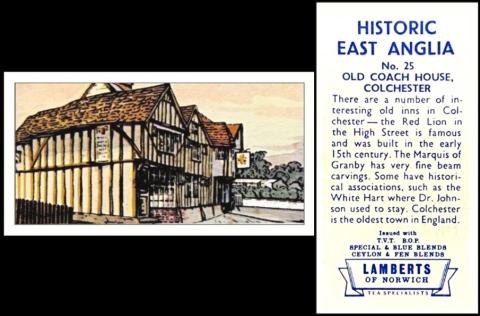
And here we have the reason for our theme, the coach, which is another word for trainer, but here refers to the mode of transport which would have stopped at this inn at times gone by.
Oddly the actual meaning of a coach house was an outbuilding to a landed estate where the coaches, and sometimes the horses, were kept dry and protected from theft, and where the tools to mend them and clean them were also stored. It is actually the eighteenth century equivalent of a garage, if you think about it.
What we have here is actually a coaching inn, a rest stop, with refreshments and sometimes even lodgings, that sprang up along roads that were regularly used by stage-coaches, a name which also refers to the fact that long journeys were in stages, and at the end of each stage was a place to stop and rest a while, usually every ten to eleven miles.
Moreover, they also work off the same definition as above, because one of their functions was to provide spare horses, and tools, if required, out of a coach-house which was attached to the premises.
I cannot find out if this building is still in existence. There is an Old Coach House which is now converted into student apartments but that is in Old Coach Road and this one is in East Bay. Maybe someone reading this can tell us whether it is still there?
Whilst researching this a strange fact turned up, and this is that this image is actually also used on a picture postcard dating from the 1930s - look at the signs, and the wooden fence, and the white long building further into the frame. In fact it is on all manner of picture postcards, but that does beg the question were these designs taken directly from postcards, and was the artist a collector thereof.
This set appears in our original British Trade Index Part II, as :
HISTORIC EAST ANGLIA. Sm Nd. (25) ... LAM-8
The exact same text appears in our updated version, with only a new code, of LAM-160
